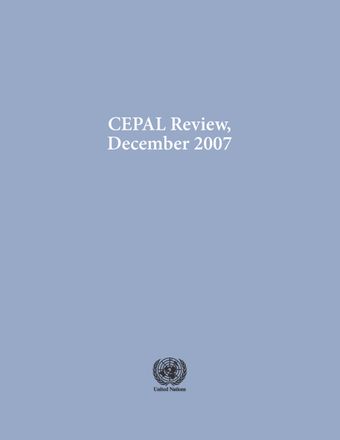-
Pluriactivity and family farming in Brazil: The case of Rio Grande do Sul
- Source: CEPAL Review, Volume 2007, Issue 93, Dec 2007, p. 149 - 164
- Spanish
-
- 14 Dec 2007
- Previous Article
- Table of Contents
- Next Article
Abstract
This article analyses the phenomenon of pluriactivity in family farming in the south of Brazil, based on a research project funded by the Brazilian National Council for Research and Development. The methodology used compares farms whose families live exclusively from agriculture, with those whose social reproduction depends also on non-farm activities or who practise “pluriactivity”. On the question of ownership succession, we found that the phenomenon studied here does not alter traditional mechanisms of succession and inheritance on the family farm. The farms that are most under threat are those with the lowest incomes, whatever their situation in terms of pluriactivity; but the latter is not necessarily a feature of the economically weakest farms.





